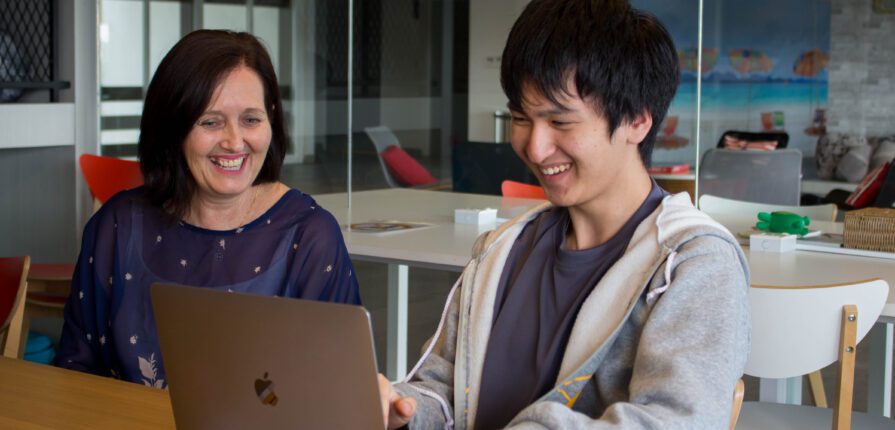The Benefits of Boarding School
Making the leap to attend a boarding school, like Raffles American School, goes beyond just making new friends, having a private room, and personal tutors. Studies have shown that becoming a boarding student can enhance academic performance and motivation due to the accessibility of professional school staff to assist them with their studies. Furthermore, their sense of independence increases with the support of boarding staff, who aid in maintaining schedules and teach time management skills. The boarding school ecosystem is also one that enriches and helps with positive youth development, having a plethora of school activities and extracurriculars for character development and interpersonal skills, on top of their regular school assignments.
Academics and Motivation
According to the study conducted by Martin et al., (2014), the comparisons shown between boarding students and day students in terms of their academic performance and motivation indicate that boarding students perform more effectively and are more likely to be motivated due to the supervision of experienced teachers in their study sessions. Their ability to provide further support and motivation outside the classroom boosts the students’ academic buoyancy (Martin et al., 2014). Academic buoyancy, defined by Martin et al., (2014), is the “students’ ability to successfully deal with academic setbacks and challenges that are typical of the ordinary course of school life.” Students can be faced with setbacks throughout the school year that induces mental distress. In the Raffles American School boarding program, students are provided with after-school study sessions and tutoring to aid them in the areas they struggle with. Professional boarding staff is able to intervene when students are in need of assistance due to their expertise with the curriculum, access to teachers, and the existing strong bond with the students. In addition, boarding staff can provide emotional support to students who are in need of reassurance on what they may be challenged by.
Independence and Self-Reliance
Students who attend boarding schools are set on a journey to become independent individuals, gain exposure to new experiences, and form unforgettable memories along the way. They are also able to develop academically and personally due to the boarding staffs’ guidance. There is also an instilled sense of responsibility and independence as a result of the boarding staffs’ guidance and assigning of chores. RAS boarding students report that they have a greater sense of responsibility and they are able to solve daily problems on their own. Other non-academic outcomes that result from attending boarding school include discipline and confidence. Since boarding students are responsible for completing their chores on their own in a timely manner, they are able to achieve their goals more efficiently and effectively in comparison to today’s students. Furthermore, boarding students participate in a wide range of boarding activities that are more frequent than normal school activities. The boarding activities allow them to explore themselves and foster confidence in their abilities. The activities include social service, art, music, carpentry, and others. Students are also able to build interpersonal skills and confidence in working together while participating in these activities, studying together, and living with each other.
Boarding School During Covid-19 Outbreak
The COVID-19 outbreak was especially difficult for day students, where teachers and students resorted to using online platforms like Zoom meetings and Google Classroom in order to continue learning. School should be one of the most influential environments for young people, it is where they spend the majority of their time, aside from their homes. It’s also where they interact with peers and are able to expand their skill sets first-hand. For boarding students, however, the case was a little different. Boarding students who remained in boarding were still able to see their peers and were in a safe and sterile bubble. Remaining in the RAS boarding facility allowed for easier control of hygiene and limited students’ possible exposure to COVID-19 from outside sources. Additional restrictions were implemented and extreme safety measures were taken, but it enabled to reduce the risk of infections significantly and allowed students to carry on having a somewhat normal school experience within their bubble.
Positive Youth Development
The term “positive youth development” is summarized and defined as adolescents’ ability for adolescents to develop their skills, personality, and mentality in a positive manner by existing in a positive environment (i.e., their home, school, and community). PYD is an intentional, pro-social approach that engages youth within their communities, schools, organizations, peer groups, and families in a manner that is productive and constructive; recognizes, utilizes, and enhances young people’s strengths; and promotes positive outcomes for young people by providing opportunities, fostering positive relationships, and furnishing the support needed to build on their leadership strengths. (Positive Youth Development | Youth.Gov, 2021) Boarding students live in an environment that encourages their growth by the boarding staff and peers. They are motivated to become more confident, self-reliant, and utilize their own life skills while being provided the necessary support to ensure their positive development.
Testimonials From a RAS Boarding Student
Raffles American School boarding students are immersed in a wide range of activities while maintaining a strict routine with the goal of undergoing the six pillars of boarding. The six pillars of boarding go hand in hand with positive youth development. Hannah, a current senior boarding student at RAS, has attended RAS boarding for three years and has recently been accepted into New York University. She recognizes that living in boarding has taught her to be more responsible and independent due to the fact that she can rely on herself to finish her tasks and have “a productive mind.”
Written by Jumana Raggam
References
Martin, A. J., & Marsh, H. W. (2008). Academic buoyancy: Towards an understanding of
students’ everyday academic resilience. Journal of School Psychology, 46(1), 53–83.
https://doi.org/10.1016/j.jsp.2007.01.002
Positive Youth Development | Youth.gov. (2021). Youth.Gov.
https://youth.gov/youth-topics/positive-youth-development


